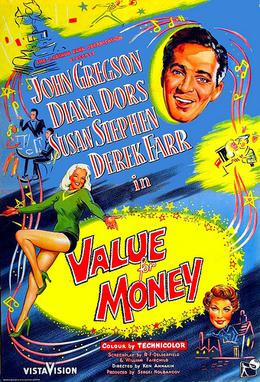When I started work on
Beirut - An Explosive Thriller way back in November 2009, I posted
this here lump of semi-prose on da blog. It was the dream/half-thought that was to lead to the book's creation, along with another nocturnal shade, a morning time dream-memory of a man being propositioned by a peroxide cropped-haired girl in the cold German winter night and brushing her off. These things coalesced over time and became the book that is the book it is.
Olives - A Violent Romance was also conceived from a dream-memory. I woke with a book in my head after sleeping to George Winston's
February Sea - a track that made me think of a girl dancing in the rain, a scene that is actually physically and literally at the very centre of the book today.
And
Shemlan - A Deadly Tragedy started with a dream, too - although the dream sequence itself didn't make it into the final book:
Shemlan opens with Jason Hartmoor wakening in a sweat after a nightmare.
I've, literally, dreamed my novels. If I've been stuck with a book's progression, I've taken the problem to bed with me and more often than not woken up with the solution - if not clear in my mind, somehow
easier with me as I've tackled it the next day.
I love the story of the bloke who invented the sewing machine. Having wrestled with the problem to no avail, he woke up one morning having dreamed of being chased by pygmy head-hunters brandishing spears with a hole in their tips. Eureka!
I think dreams are our way of managing experience and input, a sort of file management routine that lets us sort our most recent experience and weigh it against our remembered relationships, a way of learning that prioritises and balances our memory, learning and experience. We discard the unimportant, re-calculate our understandings and problem solve our issues. We re-balance, based on the inputs from the day that was. I truly believe my subconscious helps me build books.
I might, clearly, just be a total loony.
Many, many years ago I woke with the below in my head. I shared it with my girlfriend at the time, who lived in Sharjah while I lived in Northampton, in the UK. She's my wife now (Oh dear, that was rather
League of Gentlemen, wasn't it?). It's probably my first attempt at writing, although the very idea of writing books hadn't occurred to me at the time. The short story I dashed down while the memory was still clear in my head all those years back has queued patiently to take its turn, but now it is my main focus. This is the core of my new book and I can't stop working on it. I've started writing again, having just finished
The Simple Irish Farmer or whatever it'll be called.
I swear to God, it's a disease - an addiction...
______________________________________________________________________
Martin
Ashridge was a welcome contrast from the grey oppression of the city. After only a week living by the forest I had recovered my interest in life and work. The only source of worry in my delight with these freshened circumstances was that Mariam hadn't been able to get away from the city to come up and see me yet.
The city! A memorable misery; three years of making do and being alone amongst millions. Spending my working days in an antiseptic environment, preferable to the dirt, smoke and rush of the morning and evening commute. Even the small bedsit I had managed to find was little comfort as a haven, depressing every sensibility with its Victorian plumbing and Edwardian wallpaper. The ageing shabbiness came with a very modern price tag. London evenings were just a gap to fill between work, food and bed.
Even then, late at night, the city intruded. I had grown used to traffic rumbling through my short time of clear reflection before sleep, too used to faces that had no time, no concern for anything other than their own secret miseries.
Now, here in the country, I found light, laughter, sharp air and the heady scents of wet leaves and fresh grass. At night I sat by my own handiwork, a wood fire that filled the living room of the little house with warmth and the hint of pine in its smoke.
Before I went to work at the Institute each day, the cold morning light would find me padding with a little thrill across the rough flagstones of the hall with the makings of the fire to prepare for my homecoming.
Scrunched paper, criss-crossed twigs, then a couple of larger cuts laid down ready to take to flame on my return in the chill night. A lifetime away from igniting the Bakelite gas fire that brought warmth to that dingy London flat.
Of course the dog took to his new life immediately, not a moment’s hesitation there as he pounded down the woodland paths each day. Even buying a dog had been a trial in London, the pet shop filled with animal screeches and the sight of puppies scrabbling for space in tiny cages forming a background to the spectacle of the owner in her shabby pink dress and painted face.
Her voice rasped with fags and an awful confiding leer in every vowel. ‘You can't keep a big dog like this in a flat, you know.’ She coughed at me. ‘They grow up hellish fast.’
But I wasn’t buying year-old Bill for a flat. I was buying him to move into the great outdoors and now the patter of his claws on the flagstones peppered the silences, barking as he rushed to meet me every evening, Bill The Happy Labrador.
I delighted in the contrast: cold screens and air conditioned clean rooms by day, a red glow and glass of scotch at night. After five days in the country, the hammering in my head receded and my new employer had commented on the brilliance of his find.
This was my first weekend at Ashridge, and I wasted no time in pulling the collar and lead off the coat hook (with the usual attendant barking and skittering) and sallying forth on a long Saturday walk. Bill pulled and my feet scrunched on the wet gravel path, clouds of breath in the bright morning air. Soon we were away from the road, and I let Bill off and stooped as he bounded away chasing ghosts in the undergrowth. The woods took us both in, the dog and I, and we meandered for over an hour together through the pathways, Bill racing in great, curving arcs through the heather, returning to tease me with his big, brown laughing eyes.
I heard the children laughing a long time before I saw the green light of open field through the woodland. Bill was off nosing through the undergrowth again, muddling through the heather and snuffling excitedly at the day-old scent of pheasant. Labradors, I have found, are the world's greatest optimists, becoming so ecstatic at the prospect of game that they rush off making the most awful racket, never seeming to mind that every animal for a mile around has instantly gone to ground.
Making enough noise for six humans, poor old Bill would never catch even the most stupid pheasant. And believe me, pheasants are off the dial stupid.
Nevertheless, he was delighted to be pushing through the bracken, and I was happy enough walking the dark leaf mould and listening to the far-off tinkle of children’s laughter.
It must have come a good ten minutes after I had first heard them, the red flash of a tiny figure running past the opening into a field. Bill re-joined me on the path, soil on his muzzle, and leaves on his back. I dropped my cigarette, careful to heel a hole and bury the smoking mottled orange stub in a shallow grave of wet leaves.
I will never know why I didn't just walk straight onto the common. It was the first time I had walked that path, although I had strolled in the vast woodland several times during my short stay in the area. I’d normally have carried on through onto the common, and into the next patch of trees visible past the gentle rise of the otherwise flat grassland. But I stood just inside the shaded boundary of the wood and watched the source of the laughter, six children playing by the other edge of the common, some two hundred yards distant.
Four were boys, about eleven years of age. The two girls were distinguishable only because they had longer hair, all six dressed in jumpers and jeans. They were capering around one of the boys, the smallest, who was standing stock still, and looking towards the top of the trees bordering the third side of the grassland.
The girl in the red jumper seemed to be leading the whooping dance around the small, expectant figure. The boy, still fixing his gaze on the treetops, reached down, and touched the tip of a small brown pile with his index figure. As he straightened, Bill pushed against my leg and, in my annoyance at the dog for breaking the spell of my voyeurism, I almost missed the boy reach out his arm to the sky. Red jumper faltered, and fell to the grass, screaming. As the dancers stopped, and the girl on the ground kicked, a bird flew to the small boy, perching on his beckoning index finger. Quick as lighting, he grasped the bird with his other hand, and twisted its neck. I heard the faint, high pitched crack.
Again he reached upwards, and again a sparrow alighted, only to drop to the pile of dead birds. Red jumper screamed again as a third bird came to its caller and fell to the pile. A fourth. A fifth. The dancers had come close now, and were holding hands as a sixth bird died. Red jumper was silent as the pile grew, she staggered to her feet and joined the dancers but I could see her pallor, even from that distance.
My senses returned and I blundered through the undergrowth towards the group of children to stop this wrongness. Something clamped onto my mind and I slammed against the trunk of a tree, grasping it like a long lost friend.
The boy had turned, and stood with his hand stretched out to me.
Doubt and foreboding filled me as his beckoning filled my vision and the urge to go to him, to give my life up to him, hammered at me. I looked down to avoid that intense stare. Bile rose in my throat. Green stains were slashed across my chest from the lichen on the tree-trunk. My impelled legs were heavy, not mine to command. I fought, my arms clutching at the rough bark, my body compulsively jerking forward. An age of battling the urge to run to him and be consumed before a girl's scream broke the spell. ‘Martin!’
It shed the urge like the lifting of stone weights pressing the life from me. The desire to be another sparrow evaporated as the boy turned and fled with the others into the far woodland. I slid down the trunk, spent, its roughness scraping my back. I sat in the wet leaves, tears running down my cheeks and bewildered Bill licking at my face.











